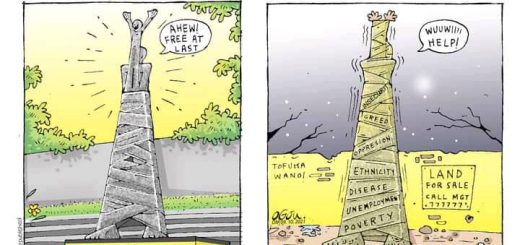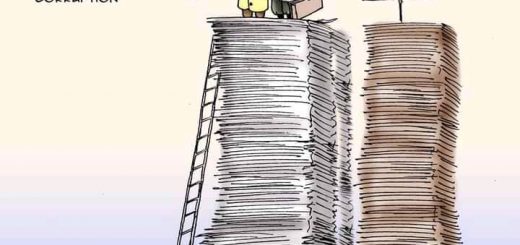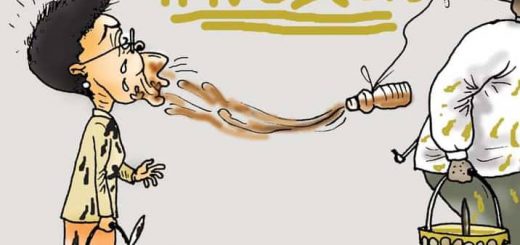Natural right of self defense in Uganda. Why Ugandans should be able to buy and own guns.

Article 45 of the Constitution provides that the rights expressly enumerated by the Constitution do not exclude other rights not expressly provided for. This provision reserves other rights and powers not expressly provided for or assigned to the state to the people.
According to the Center for Public Interest Law (CEPIL), the rationale behind article 45 is that human rights are inherent and not accorded by the state and that is why individual enjoyment of rights are not limited to the rights specifically provided for in the constitution. CEPIL agrues that the notion of human rights goes beyond the violations that currently occur. It explains that as the world evolves, new violations come up that may not necessarily be provided for by the constitution and that the essence of Article 45 to anticipate and curb any future violations.
Article 45 is a convenient way of the leaving the door open for other rights that arise in future and anticipate those rights that are not specifically provided for by the Constitution. It is unrealistic to expect the Constitution to expressly provide for every concievable rights. Therefore, under the Constitution of Uganda, the categories of protected rights are not closed. There are other rights that are not expressly provided for that are protected by the Constitution. For example, in the United States, a right to abortion and same sex marriage have been been declared by the courts even though they are not expressly protected by their Constitution.
Under the social contract formulation of Constitutional democracy, individuals enter a social contract under which they agree to put in place laws and regulations to govern their interactions with each other. It goes without saying that such a complex understanding between individuals can not provide for every concievable situation. In any case the social contract is for ever evolving such that new obligations and rights are being created by the organs of the state that represent the will of the people. By organizing themselves into a state, individuals create a legislature to make laws on their behalf, the judiciary to interpret and apply the laws and the executive to implement the laws. In a true democracy, the people through their respresentatives alter the social contract from time to time. Even the judiciary though not ordinarily elected by the people alters the social contract through interpretation of the Constitution. The courts through interpretation of the social contract create new rights and clarify old ones.
Hobbes argues that although some people may be stronger or more intelligent than others in their natural state, none are so strong as to be beyond a fear of violent death, which justifies self-defense as the highest necessity. In the two treaties of government. John Locke asserts the reason why individuals join the social contract. He argues that the reason is to join others so as to gaurantee his continued existence and that of his property.
…the enjoyment of the property he has in this state is very unsafe, very unsecure. This makes him willing to quit a condition, which, however free, is full of fears and continual dangers: and it is not without reason, that he seeks out, and is willing to join in society with others, who are already united, or have a mind to unite, for the mutual preservation of their lives, liberties and estates, which many call by the general name, property.
Johnn Locke
The Constitution of Uganda does not provide for a right to self defense. However parliament under Section 15 of the Penal Code Act provides for self defense. It’s determined in line with English law. The right to self defense is as basic as the right to life and the right to property. The right is a facet of both the right to property and the right to life. Self defense can be a matter of life and death especially where there is a threat to life or limb. It extends to property where there is a threat to the property of an individual. There is no point to having a right to property if the property owner has no right to defend his or her property. A right to life is equally less secure if a person can not take steps to preserve his or her from those that threaten it.
Clearly both the right to life and the right to property are wide enough to include a right to take steps to preserve them by stopping those that seek to destroy them. The extent of the right to self defense is that a person is entitled to use lethal force where he has reasonable grounds to believe that his or her life is in imminent danger even though he or she might actually be mistaken. In the people v La voie, the Supreme Court of Colorado, 395 P.2d 1001 (1964) explained the right as follows:
“When a person has reasonable grounds for believing, and does in fact actually believe, that danger of his being killed, or of receiving great bodily harm, is imminent, he may act on such appearances and defend himself, even to the extent of taking human life when necessary, although it may turn out that the appearances were false, or although he may have been mistaken as to the extent of the real actual danger.”
people v La voie,
The right to self defense is not some entitlement provided by state or the Constitution. It is a natural and inherent right that a person is born with. There is a natural right of resistance and self-preservation which in some states is implemented by the right of owning and using arms for self-preservation and defence. Early man might not have had guns or knives or gun powder but in his state of nature he could fashion a weapon from his environment with which to defend himself. No one could tell him that he can not fashion a spear or a bow and arrow or other weapon. These were the very essentials of his survival just like food and sustsinance. By entering the social contract and agreeing to common defense, man might have agreed to reasonable restrictions to his natural rights but he didn’t give them up and may not even be capable of giving up his fundermental right to defend himself and his family. In the district of Columbia with Heller the Court ultimately concluded that the second amendment “guarantee[s] the individual right to possess and carry weapons in case of confrontation” (id. at 592); Court reasoned that “central to” this right is “the inherent right of self-defense”(id. at 628); that “the home” is “where the need for defense of self, family, and property is most acute” (id. at 628); and that, “above all other interests,” the second amendment elevates “the right of law-abiding, responsible citizens to use arms in defense of hearth and home” (id. at 635).
There is no doubt that the natural right of self defense exists in Uganda after all Ugandans have a legal defense of self defense gauranted by the penal code act and recognized by the common law. However, does the right to self defense gaurantee a person the right to purchase and own a fire arm for the defense of his family and property. Uganda does not impose a ban on the possession of other weapons that might be used for self defense in the home but it restricts the ownership of fire arms to those in law enforcement, the armed forces, private security companies and individuals who are granted a license by the Inspector General of the Police. The Fire arms Act vests the authority to issue a gun license to the Inspector General of Police but the IGP has not licensed any gun shops or gun training centres where a citizen can easily buy a gun and obtain a license for it
Just like other entitlements in Uganda, getting a gun license is reserved for those who are sufficiently connected or sufficiently close to the centre of power. There is no simple procedure for a law abiding citizen to purchase a gun and apply for a license yet criminals can some how access and own guns. With brutal killing and kidnap of citizens increasing in Uganda, maybe it is time to give effect to the right to self defense. In circumstances, where criminals have access to guns, law abiding citizens should not be left to defend themselves with pangas and knives. Law abiding citizens have a right to effective weapons that can give them a fighting chance against the criminals.
The state is never going to make it easy for law abiding citizens in Uganda to purchase and legally own guns because those same citizens can use the guns to topple an oppressive regime. Imagine a situation where law abiding citizens were armed and lawless state agents came to kidnap them in the middle of the night. If there is ever a legitimate use of a weapon to defend yourself, a thug breaking into your house in the middle of the night must be such a time. The state is simply scared that the oppressed might turn around and use the very guns they lawfully own to fight the dictatorship. This explains why no single African country has accommodative gun laws that allow law abiding citizens to own guns for their self defense.
The natural right to self defense may for ever remain orphaned in Uganda because the state is scarred of law abiding citizens owning guns. However, part of the social contract is that if the state abuses its delegated power and oppresses those that it represents the people have an unalienable right to topple the state either at the ballot paper or by force. When an agent fails to protect your interests do you sit idly by and let him or her continue to abuse your agency. You swiftly terminate the agency and replace him or her with another agent. The state need not worry about law abiding citizens, they are never going to topple the state by force except in very exceptional circumstances. Law abiding citizens will use the weapons for self defense.
Read More
- Ideal Amendments that should be included in the Magistrates Courts Amendment Bill 2026 of Uganda
- President Yoweri Kaguta Tibihaburwa Museveni is a minority President voted by only 7,946,772 (36.7%) out of 21,649,608 eligible Ugandan voters in the 2026 Presidential Elections
- Four years of IGG Beti Kamya drowned the Inspectorate of Government (IG) deeper into oblivion and irrelevancy but it Can be redeemed
- The Proposal to Make Magistrates Grade Ones Chief Magistrates is an efficient use of resources that will improve service delivery in Uganda
- If Magistrates Courts in Uganda are less competent and more prone to corruption does it mean that the poor deserve inferior justice to the rich.


